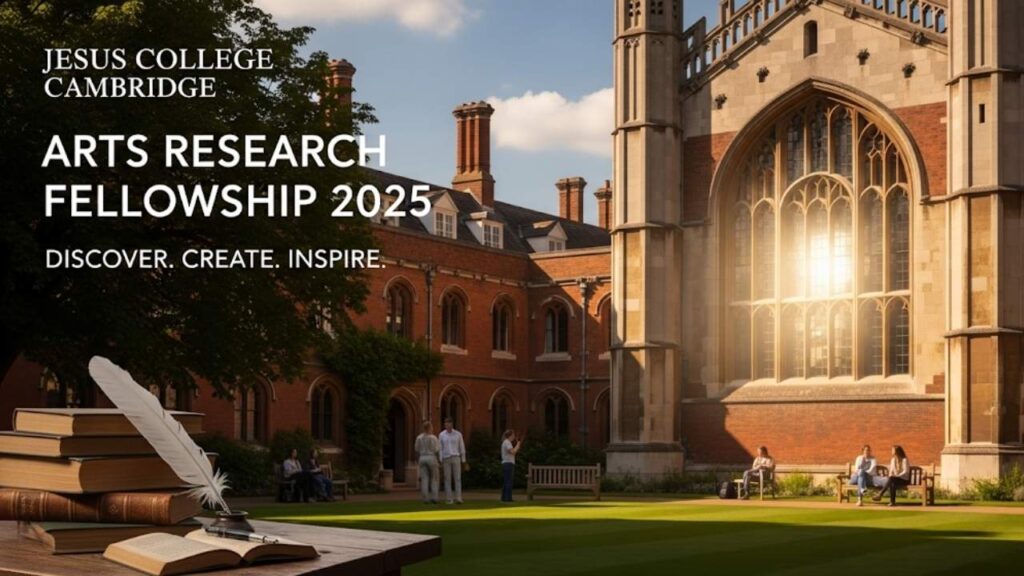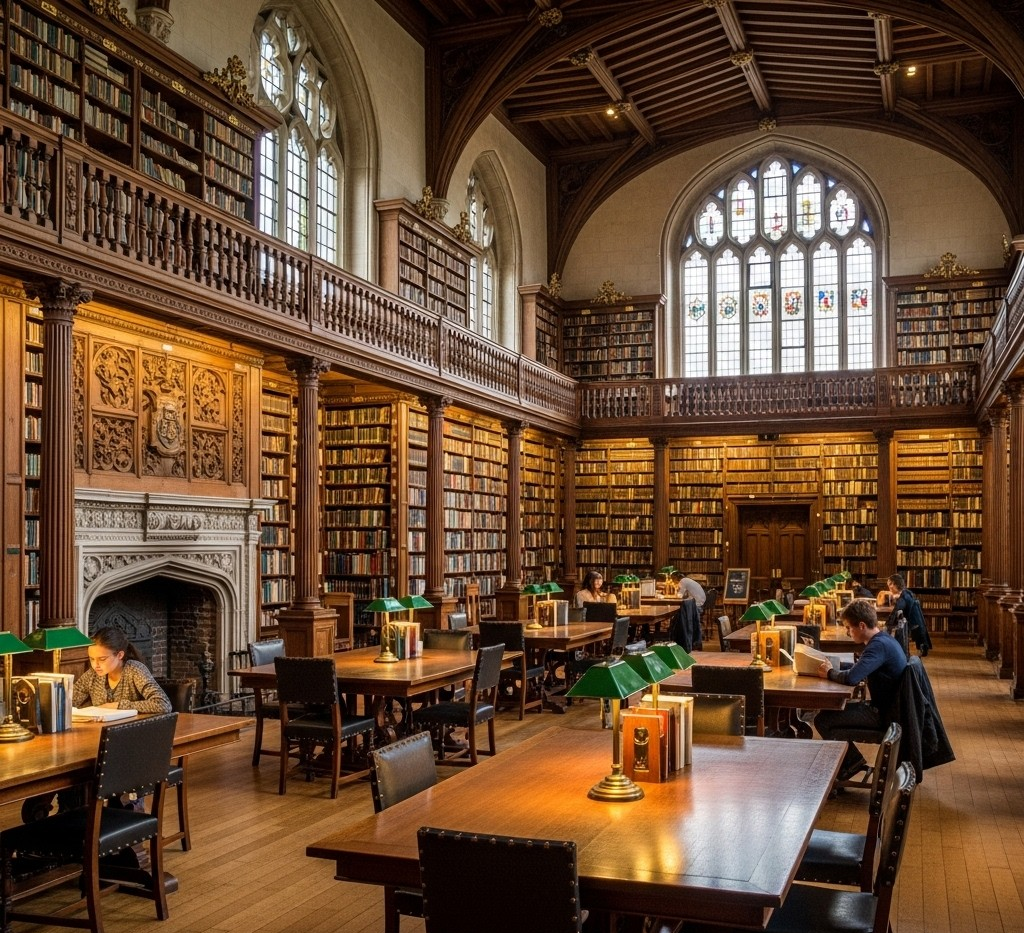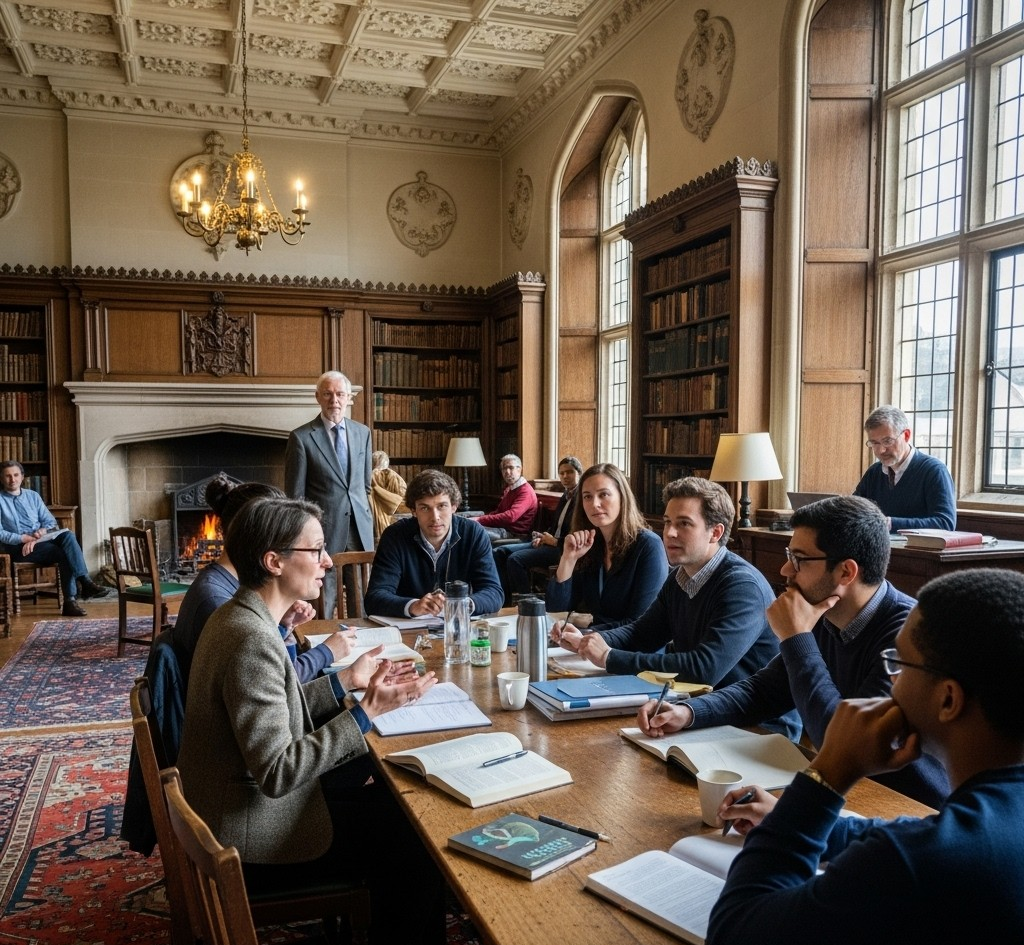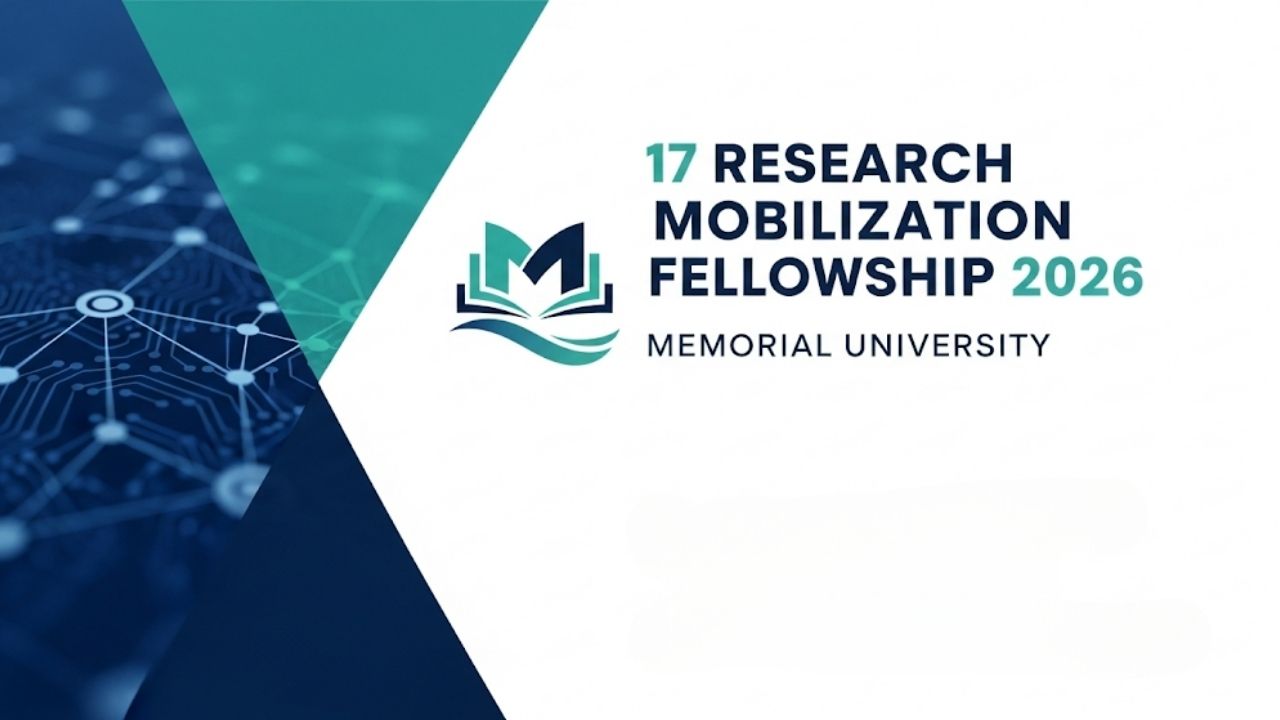The Arts Research Fellowship 2025 at Jesus College Cambridge represents one of the most prestigious and transformative opportunities for an early-career scholar in the humanities or social sciences. It’s more than just funding; it’s an invitation to join a vibrant intellectual community at the heart of one of the world’s leading universities. Navigating the application can feel like a monumental task, but with the right strategy, it’s an achievable dream. This guide will provide you with a clear, step-by-step roadmap to crafting a compelling application that showcases your unique potential.

Arts Research Fellowship 2025 at Jesus College Cambridge
| Key Fact | Detail | Why It Matters |
| Fellowship Title | Junior Research Fellowship (JRF) in the Arts, Humanities, and Social Sciences | This is the official title for postdoctoral research positions within Cambridge colleges, signifying full membership in the college’s academic community. |
| Typical Deadline | Late August / Early September 2024 (for October 2025 start) | Deadlines are strict. You must confirm the exact date on the official college website and plan your application timeline months in advance. |
| Stipend & Benefits | Competitive stipend (e.g., ~£34,000), free accommodation or housing allowance, dining privileges (High Table), research and travel grants. | This comprehensive support allows you to focus entirely on your research without financial pressure, providing an unparalleled environment for scholarly work. |
| Eligibility | Applicants must typically have submitted their PhD thesis by the start of the fellowship and have no more than three years of postdoctoral experience. | This fellowship is specifically designed for researchers at the very beginning of their academic careers, aiming to support the next generation of leading scholars. |
Applying for the Arts Research Fellowship 2025 at Jesus College Cambridge is a marathon, not a sprint. It demands careful planning, meticulous preparation, and a deeply compelling research vision. While the competition is fierce, the reward is an unparalleled opportunity to launch your academic career in a supportive, historic, and intellectually thrilling environment. Use this guide as your starting point, believe in the significance of your research, official Jesus College website ,and begin preparing your materials with confidence.
What Makes the Jesus College Fellowship a Golden Opportunity?
Securing a Junior Research Fellowship (JRF) at any Cambridge college is a career-defining achievement. It offers the precious gift of time—three to four years to turn your doctoral thesis into a groundbreaking book, launch a new research project, and establish yourself as a leading voice in your field.
Jesus College, founded in 1496, offers a particularly welcoming and dynamic environment. Known for its stunning grounds and progressive atmosphere, the college has a long history of supporting pioneering research. As an Arts Research Fellow, you aren’t just a visitor; you become part of the College’s Governing Body. This means you’ll dine at High Table with senior academics, engage in cross-disciplinary conversations, and contribute to the intellectual life of a community that includes everyone from world-renowned professors to brilliant undergraduates.
The benefits are designed to provide complete academic freedom:
- Financial Security: A generous stipend ensures you can live comfortably in Cambridge.
- A Place to Call Home: The college often provides beautiful, historic accommodation on-site, placing you at the center of academic life.
- Dedicated Research Support: Additional grants for conference travel, archival visits, and books mean your research ambitions won’t be limited by your budget.

Are You Eligible for the Arts Research Fellowship 2025 at Jesus College Cambridge?
Before you invest time in the application, it’s crucial to ensure you meet the strict eligibility criteria. While you must consult the official Jesus College website for the definitive regulations for the 2025 cycle, the requirements are generally consistent.
Academic Requirements
The fellowship is aimed at researchers who are at the very start of their careers. Typically, you must:
- Hold a PhD or be in the final stages of completing one. You will usually need to have submitted your doctoral thesis for examination by the time the fellowship begins (e.g., by 1 October 2025).
- Have limited postdoctoral experience. Often, candidates with more than two or three years of postdoctoral research experience are not eligible. The goal is to support those who have not yet held a permanent academic post.
Subject Areas
The “Arts” designation at Cambridge is broad, covering a wide range of disciplines within the arts, humanities, and social sciences. Eligible fields often include, but are not limited to:
- Classics and Ancient History
- English Literature
- History
- Modern and Medieval Languages
- Musicology
- Philosophy
- Political Science and International Relations
- Sociology
- Theology and Religious Studies
The Ideal Candidate Profile
Beyond the formal criteria, what are the selectors really looking for? In my experience advising aspiring academics, I’ve seen that successful applicants share a few key traits. They don’t just have a brilliant PhD thesis; they have a compelling and forward-looking vision for what comes next. The selection committee wants to see a researcher with an ambitious, original, and feasible project that promises to make a significant contribution to their field. They are investing in your future potential, not just your past accomplishments.
Crafting a Winning Application: A Step-by-Step Guide
Your application is your sole opportunity to make a case for yourself. Every document must be polished, persuasive, and perfectly tailored.
1. The Research Proposal: Your Academic Blueprint
This is the heart of your application. It should be a clear, concise, and compelling document of around 1,000-1,500 words that outlines the research you intend to conduct during the fellowship.
- A Clear Research Question: Start by stating the central problem or question your research will address. Why does this question matter to your field right now?
- Originality and Contribution: Explicitly state how your project will challenge existing scholarship and offer a new perspective. What is the unique contribution you will make?
- Methodology: How will you answer your research question? Detail the sources, archives, or theoretical frameworks you will use.
- A Realistic Timeline: Break down your proposed 3-4 year fellowship into a viable plan. For example: Year 1 (Archival research and drafting two chapters), Year 2 (Completing the book manuscript), Year 3 (Publishing articles and developing a second project).
2. The Curriculum Vitae (CV)
Your academic CV should be clean, professional, and easy to scan. Prioritize clarity over flashy design. Include sections for:
- Education (PhD, MA, BA)
- Awards and Honors
- Publications (if any)
- Conference Presentations
- Teaching Experience
- Referees
3. The Writing Sample
You will be asked to submit a sample of your written work, typically a chapter from your PhD thesis. Choose a chapter that best represents the quality, originality, and argumentative force of your overall project. It should be a self-contained piece that a non-specialist in your immediate field can understand and appreciate.
4. Letters of Recommendation
Choose your referees wisely. You will need two or three letters from established academics who know you and your work intimately, most importantly your PhD supervisor.
- Ask Early: Give your referees at least a month’s notice before the deadline.
- Provide Materials: Send them your research proposal, CV, and the writing sample you are submitting. This helps them write a detailed and specific letter that corroborates the strengths of your application.
The Interview Stage: A Conversation Among Peers
If your written application is shortlisted, you will be invited to an interview. This is often the final and most decisive stage. The format is typically a 20-30 minute conversation with several Fellows of the College from various disciplines.
Expect questions about
- Your Research Project: Be prepared to summarize your project’s core argument and contribution in just a few minutes.
- The Future of Your Field: They want to see that you are thinking about the broader intellectual landscape.
- Your Contribution to College Life: Why Jesus College specifically? Show that you’ve done your research and are enthusiastic about joining their community.
I’ve seen many successful applicants excel in the interview by treating it less like an exam and more like a vibrant conversation with future colleagues. Show your passion, be open to new ideas, and demonstrate your potential to be an engaging and collaborative member of the college.

Life as a Jesus College Arts Research Fellow
Life as a JRF is a unique blend of intense, independent research and rich communal living. Your days will be your own—spent in the library, archives, or your college room, immersed in your work. In the evenings, you’ll have the opportunity to attend formal dinners, talks, and concerts, building friendships and intellectual connections that can last a lifetime.
FAQs
Q1:Can I apply if my PhD is not from a UK university?
Yes, absolutely. Jesus College welcomes applications from outstanding candidates from all over the world. Your academic excellence and the strength of your research proposal are the primary selection criteria, not your institution of origin.
Q2:Is there an age limit for the fellowship?
There is no formal age limit. However, the fellowship is intended for early-career researchers. The eligibility rules are typically based on the date of your PhD submission and the length of your postdoctoral experience, which naturally favors recent graduates.
Q3:What is the success rate for this fellowship?
Junior Research Fellowships at top Cambridge colleges are extremely competitive, with success rates often in the low single digits. It is not uncommon for a single position to attract several hundred applications. This underscores the need for an exceptionally strong and polished application.
Q4:Does the fellowship include accommodation?
Yes, one of the most significant benefits is the inclusion of accommodation. Fellows are typically offered a residential set of rooms within the college itself, free of charge. If accommodation is not available, a housing allowance is often provided as an alternative.










